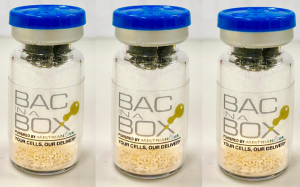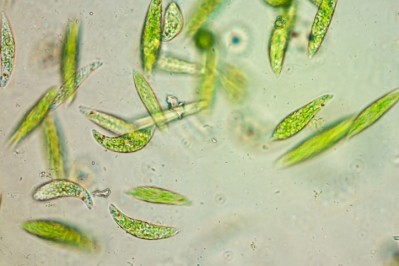Against the number game: Singapore biotech firm receives seven-figure funding to grow probiotics encapsulation business

‘Bac-in-a-box’ uses a patented cellulose sulphate polymer to encapsulate and grow probiotics in beads the size of a granule. The granules can then be freeze-dried into powder, allowing probiotics to survive at room temperature.
A study published last year also showed that the technology could protect probiotics against gastric acid and reach the lower intestines alive.
Austrianova announced this month that Japanese firm Real Tech Fund has invested a seven-figure amount.
Real Tech Fund specifically invests in innovative start-ups from Japan and South East Asia. It is managed by Real Tech Holdings, a joint venture between biotech firm euglena Co. and Leave a Nest Co.
Speaking to NutraIngredients-Asia, Brian Salmons, CEO of Austrianova, said ‘bac-in-a-box’ had attracted interest from a Europe-headquartered MNC and an Australian company, and both have adopted the technology in their upcoming probiotics products.
“Usually, the company would recognise that they want to make a [probiotic] product, but they might have realised that there are issues around shelf storage, or with delivery, or the ability to protect against stomach acid,” he said.
From his observations, while most probiotics manufacturers are aware of how temperature and pH changes could affect the effectiveness of probiotics, he said that it was usually the new companies which were more receptive of using probiotics encapsulation technology.
“Today, it’s been mainly the start-up companies or established companies that want to do something new and are looking at using cutting edge technologies.
“Most of our partners are new companies looking to use cutting edge technologies, and because they are starting from scratch, I guess they have the bandwidth to be able to incorporate a new encapsulation technology.”
Across Asia-Pacific, he pointed out that Japan and South Korea were markets which have a better understanding of probiotics encapsulation technologies.
With the new funding, the company hopes to connect with companies making probiotics and introduce the 'bac-in-a-box' technology to them.
The funding will also be used to ramp up feasibility studies, building prototypes, moving into lab scale production, and pilot production for its customers.
“[However], when their sales took off, we wouldn't be the ones doing the final market production. They would either licence the bac-in-a-box technology to manufacture the products themselves or we will approach a third-party manufacturer together.”
The more the better?
Salmons claimed that a common practice in ensuring probiotics viability is by adding huge number of probiotics so that some could survive till the end of the product shelf life.
“I think sometimes there is a reticence from some of the more established companies to address those issues [of protecting probiotics viability] though. Because the way that they are approaching it at the moment, is that they are putting huge number of live bacteria in their products.
“And then the customer will compare and think that the more [bacteria] the better and they [the probiotics companies] play on that and that is a selling point.
“They want to compete on this basis, but I think they are also aware internally that this is not a very good scientific argument,” he said.
He acknowledged that companies tend to associate new technologies with high cost and this was a major roadblock to overcome.
In response, he pointed out that ‘bac-in-a-box’ uses inexpensive natural polymer as a starting material and is able to grow live probiotics within a tiny bead without the need for a big facility.
“If you are adding for example, 80 billion of bacteria, you will need a huge facility to make those numbers of bacteria, but for us, we grow the bacteria within our beads and need smaller amounts, and that offsets the cost of using the technology.
“I think, once they see a product out there, where the cost is lower and doesn't use huge numbers of bacteria, then they will be convinced of the benefits of probiotics encapsulation.”




















